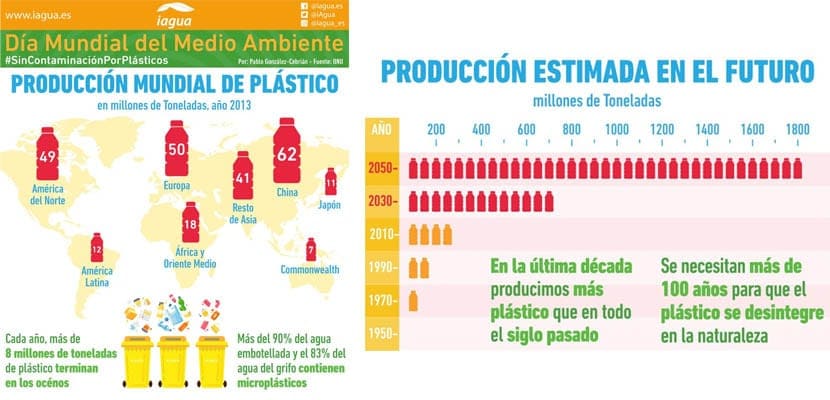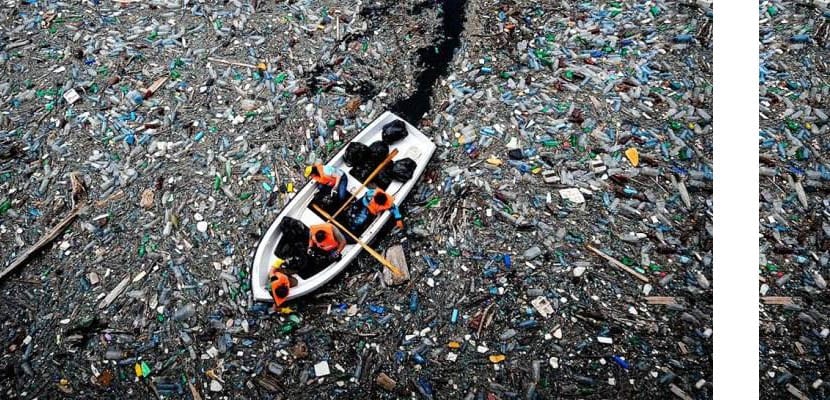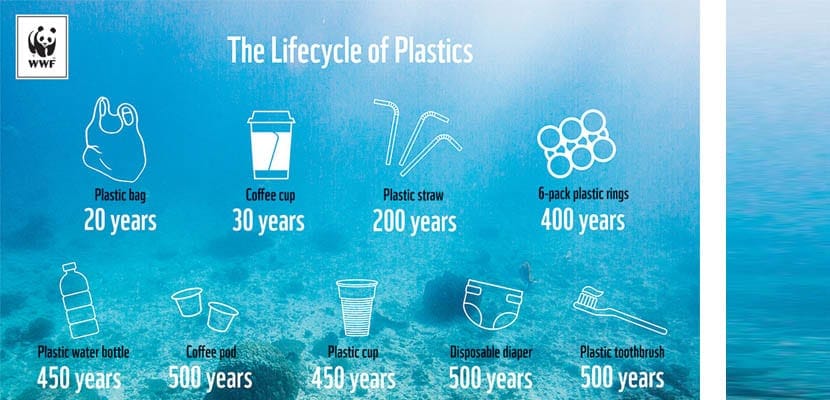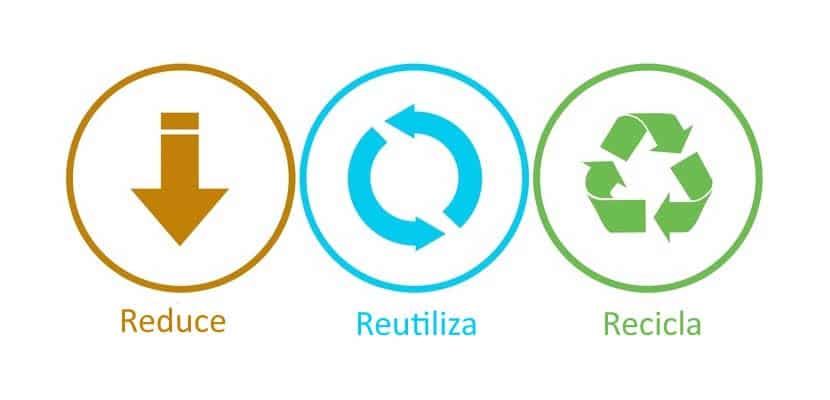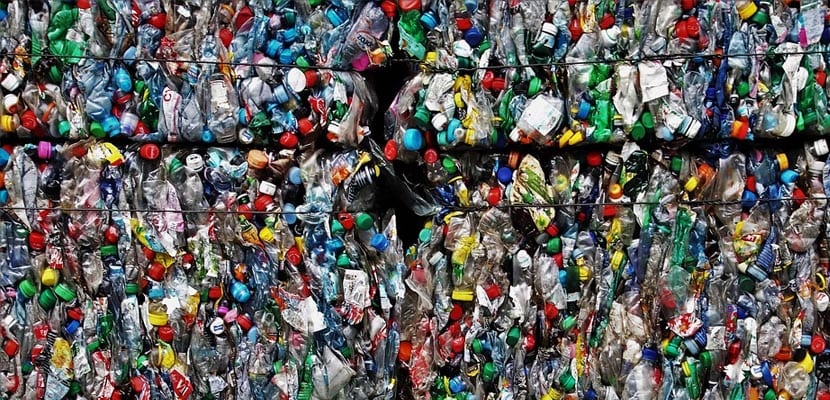
Since the 50s first polyethylene bag creeping into our homes, our dependence on this material has only increased. Today plastic is present in all areas of our life. We drink from plastic bottles and buy apples, onions and mushrooms wrapped in plastic in supermarkets without question?
El environmental impact of plastic globally it is devastating. Do you know that there are plastic islands in the oceans? These are causing irreversible damage to marine fauna and our health through the food chain. It is in our power to take measures and contribute with small actions to reverse it. Do you want to know how?
The figures, growing since the 50s
In 1955 Life magazine featured a photo of an American family celebrating the arrival of a throwaway life, in which single-use plastics have had a great influence. Since then, an estimated 8300 billion tons of plastic have been produced globally and demand is expected to continue to increase.
Projections indicate that in 2030 about 700 million tons will be produced and in 2050, more than 1.000 billion. If things don't change, only 10% will be recycled. The remaining 90% will end in sources of water or in landfills.
According to the study 'A plastic trap. Liberating the Mediterranean from plastic ', produced by WWF, the Mediterranean Sea each year houses 27 million tons of plastic. Spain is the second country and the first in the European Union that dumps the most plastics into its waters: eight million tons every year.
The magnitude of the problem is such that in our oceans there are "Islands of garbage". Of the five there are, the largest is in the Pacific, between the California coast and Hawaii. This oceanic landfill is characterized by exceptionally high concentrations of suspended plastic, among other debris.
Environmental impact of plastic
The plastics industry has invested so much money in promoting a culture of disposable use, that it has not been until now that many have been aware of the dangers of plastic. Neither conventional plastic nor new bioplastics are biodegradable, as they have wanted to sell us. Its footprint is too long.
Plastic is not capable of degrading or dissolving into its original chemical components. Plastics fragment, depending on the rate of fragmentation of the environmental conditions, mainly the temperature and the amount of UV light. The fragments thus reach microscopic sizes (microplastics) invisible to the human eye over time.
According to a recent investigation by the journalistic organization Orb, microplastics they are found in 83% of the drinking water samples from almost a hundred territories. It is not surprising, therefore, that these can be ingested by marine species and thus enter the food chain.
The persistence of plastics in nature can lead to serious risks for humans, including the exposure to chemicals, which are either present in the composition of these plastics or have been adsorbed on them in the marine environment.
How to reduce the use of plastics
One of the first popular measures to curb the harmful effects of plastic pollution has been to regulate the use of plastic plastic bags. These types of measures, although necessary, are, however, insufficient, according to UN Environment experts in the State of Plastic 2018 report. What else can we do?
Avoid single-use plastics
Single-use plastics represent 70% of all marine debris. This category includes ear buds, cutlery, plates, straws, food and drink containers and oxodegradable plastic bags, among others. The EU already plans to ban them or limit their use, but we do not have to wait for these measures to prevent them.
Many manufacturers have already realized that the fight against plastic is unstoppable. It's simple find alternatives in the market that facilitate the task of avoiding the consumption of these plastics. Buying in bulk, using reusable bottles and metal lunch boxes to take food to work, and replacing plastic utensils with bamboo ones, are simple actions that we can implement in our home.
Reduce reuse recycle
Reducing the consumption of plastic and looking for alternatives to products made with this material is the key of the 3R. The second step for a responsible consumption is to reuse the materials to avoid consuming new resources. And the third? Recycling, although this should always be the last option. It is the least effective way to achieve sustainable consumption and reduce our ecological footprint.
Invest in new biodegradable materials
Governments also need to introduce financial incentives to change the habits of consumers, retailers and manufacturers. Bet on innovation and responsible design of packaging that are not harmful to the environment and not fool ourselves with it. mirage of bioplastics.
Are bioplastics and biodegradable plastics "green" alternatives? Biodegradable plastics, like conventional ones, need chemical additives for their manufacture that can be toxic. Paradoxically, making bioplastics is more polluting and generates more CO2 than making plastics with petroleum.
Besides, the biodegradable label like the healthy label they are used very lightly. Certain 'biodegradable' plastics are only biodegradable in high temperature industrial composting plants. Others are not biodegradable in seawater. The fact that a plastic is partially made with organic matter, therefore, is not a guarantee of anything.
Is the person responsible for plastic pollution the manufacturer or the consumer? In Bezzia We believe that as consumers it is important to assume our part of responsibility in order to influence those who make decisions and change our habits. Have you already changed anything regarding the consumption of plastics? Share it with us.
